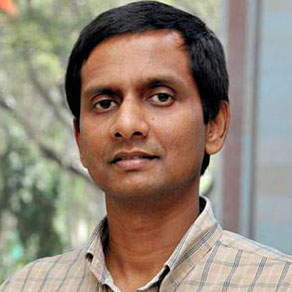
Sebastián Ventura
[intermediate] Supervised Descriptive Pattern Mining
Summary
The objective of this course is to make a gentle introduction to several disciplines which aim at the discovering of useful descriptive patterns, represented as rules induced from labeled data. For each of these disciplines we will examine their goals, the main algorithms described in the literature for them and some illustrative examples to show their usefulness in real-world problems. We will finish this discussion with a reflection about scalability and the adaptation of these algorithms to big data problems.
Syllabus
- Introduction to Supervised Descriptive Pattern Mining
- Contrast Sets
- Emerging Patterns
- Subgroup Discovery
- Class Association Rules
- Exceptional Models
References
S. Ventura & J.M. Luna. Supervised Descriptive Pattern Mining. Springer, 2018.
G. Dong. Exploiting the Power of Group Differences: Using Patterns to Solve Data Analysis Problems. Synthesis Lectures on Data Mining and Knowledge Discovery, Vol. 11, nº 1. Morgan Claypool, 2019.
G. Dong & B.J. Bayley (eds). Contrast Data Mining. CRC Press, 2013.
P. K. Novak, N. Lavrac, and G. I. Webb. Supervised descriptive rule discovery: A unifying survey of contrast set, emerging pattern and subgroup mining. Journal of Machine Learning Research, 10:377–403, 2009.
Pre-requisites
Frequent itemset mining: concept, essential algorithms and their implementation. Association rule mining: concept, essential algorithms and implementation. Computer programming.
Short bio
Sebastián Ventura is currently a Full Professor in the Department of Computer Science and Numerical Analysis at the University of Córdoba (Spain), where he heads the Knowledge Discovery and Intelligent Systems Research Laboratory. He is also affiliated professor at the Department of Computer Science, Virginia Commonwealth University (Richmond, USA). He has published three books and about 300 papers in journals and scientific conferences, and he has edited about 10 books and special issues in international journals in his area of expertise. He has also served as General and Program Chair in several conferences in the fields of machine learning and artificial intelligence, and currently he holds different positions at the editorial boards of journals such as Information Fusion, Engineering Applications of Artificial Intelligence, and Computational Intelligence, serving also as Editor in Chief at the Progress in Artificial Intelligence journal. His main research interests are in the fields of data science, computational intelligence, and their applications. Dr. Ventura is a senior member of IEEE Computer, IEEE Computational Intelligence and IEEE Systems, Man and Cybernetics Societies, as well as the Association of Computing Machinery (ACM).















